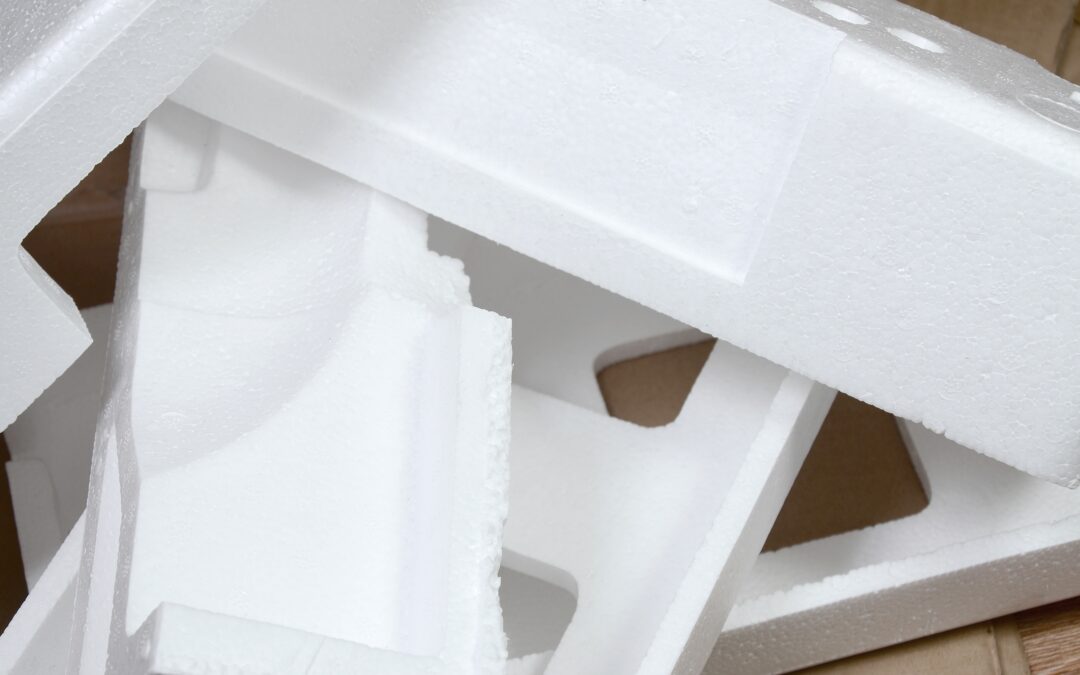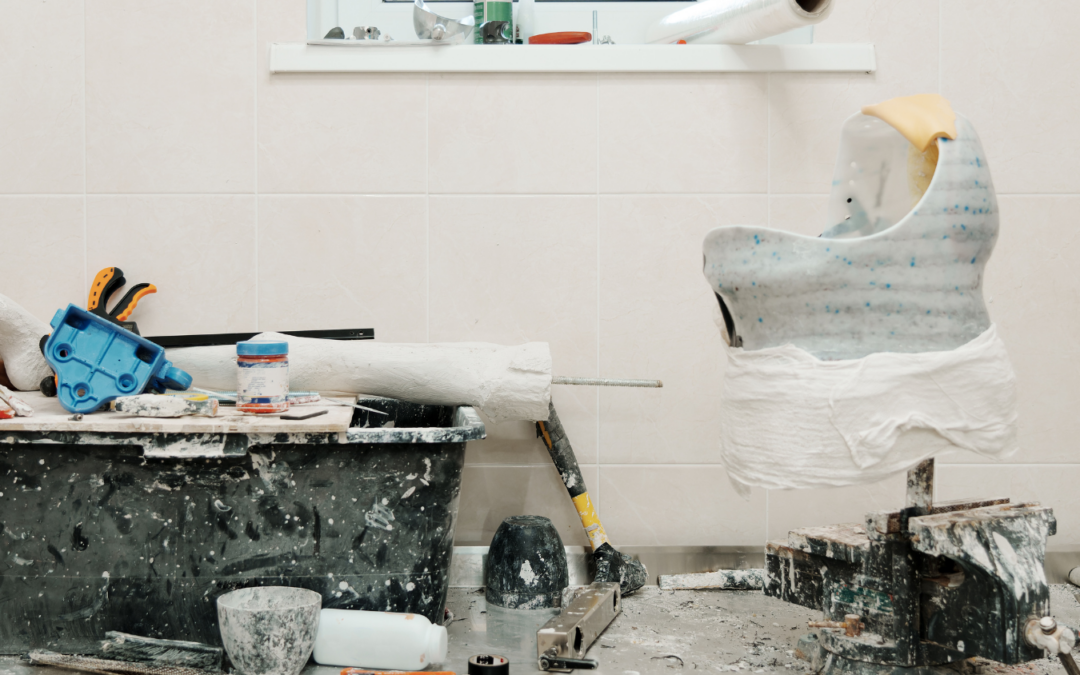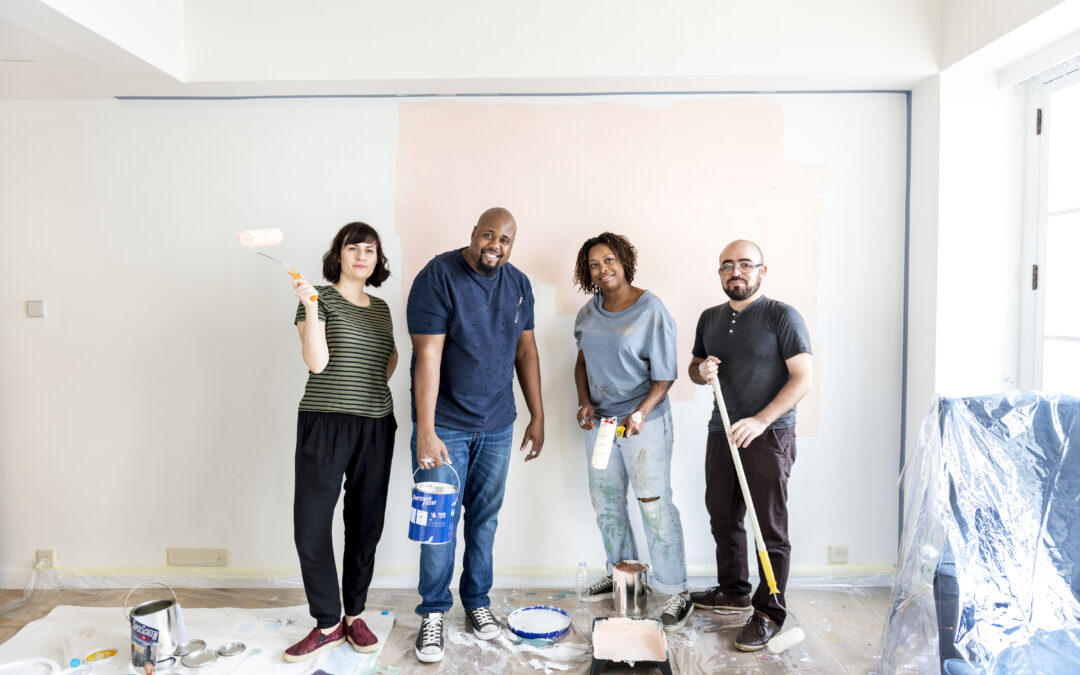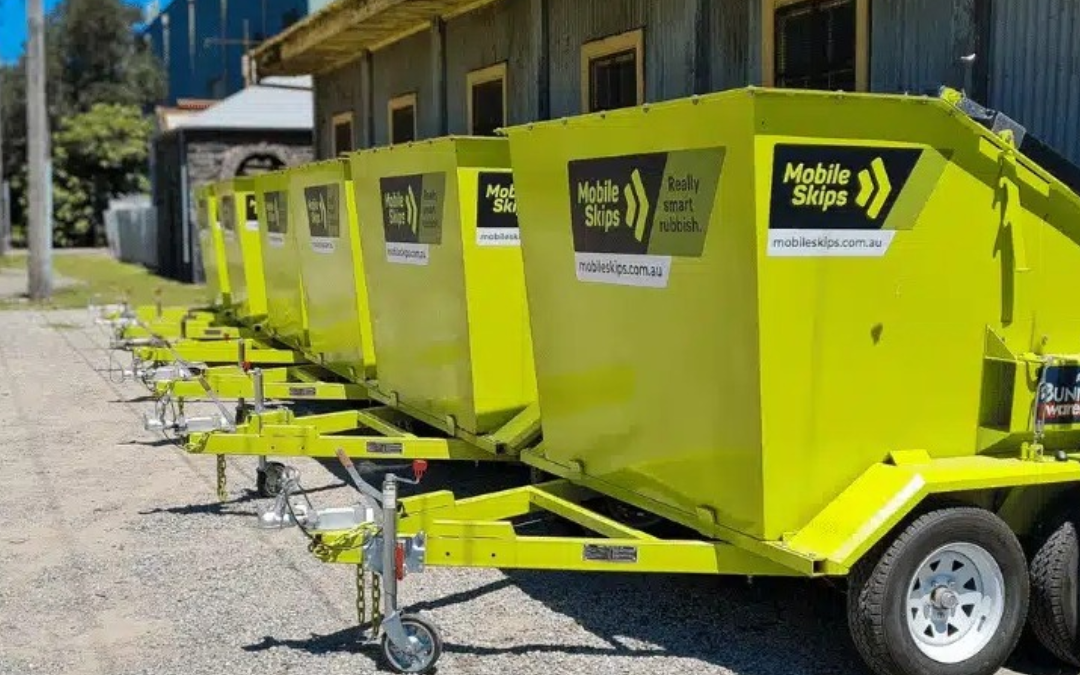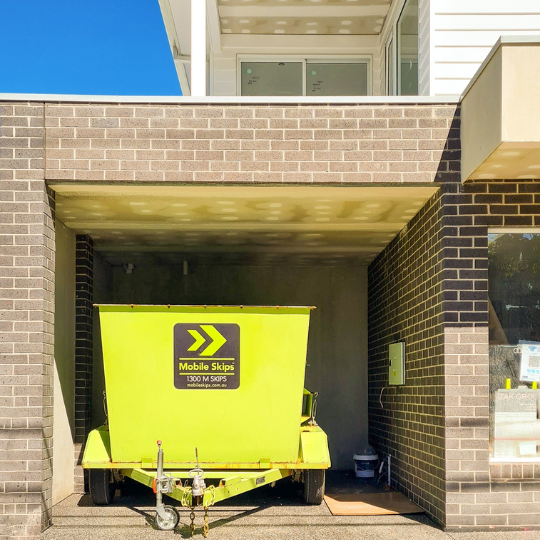Why Decluttering Rocks
Decluttering your home isn’t just about making space. It can seriously boost your mental and physical health. As you sort through your stuff, you’re not just tidying up; you’re setting the stage for a healthier, happier you.
Mental Health Perks
Clearing out clutter can do wonders for your mind. Robert S. Petercsak, a licensed clinical social worker, says that getting rid of unnecessary items can create a peaceful living space and bring a sense of order (Hackensack Meridian Health).
Studies show that clutter can mess with your focus and make you feel overwhelmed, leading to irritability and distraction. On the flip side, a neat and organized space can boost productivity and help you process information better.
Beyond just being organized, a tidy home can help you relax and lift your mood. It can even improve your sleep and overall wellbeing. Plus, decluttering can make you feel better about yourself and encourage healthy habits, which are key for good mental health (Psychology Today).
Physical Health Perks
Don’t overlook the physical health benefits of decluttering. Clearing out your space can lower the risk of asthma and allergies by getting rid of dust, mold, and mildew, which are common triggers (WebMD).
A clutter-free home also keeps pests at bay, which can carry diseases. By keeping your space clean, you’re not just organizing; you’re protecting your health.
| Benefit | What It Does |
|---|---|
| Better Focus | Less clutter means fewer distractions, so you can concentrate better. |
| Improved Sleep | A tidy bedroom creates a calm atmosphere, helping you sleep better. |
| Fewer Allergies | Less clutter means less dust and mold, which can trigger allergies. |
| Pest Control | A clean home is less attractive to pests, reducing the risk of infestations. |
Jump into the world of decluttering and organizing to enjoy these mental and physical perks. As you start this journey, check out some home decluttering tips to make the process smoother and boost your wellbeing even more.
Why Decluttering Matters
Decluttering your home isn’t just about making space or tossing out stuff. It’s about setting the stage for a happier, more fulfilling life. Here’s how clearing out the clutter can change your home and your life.
Finding Order
When you declutter your home, you’re turning chaos into calm. An organized space helps you feel more in control, which is a big deal in our busy lives. Jenny Albertini, a pro at decluttering, says it’s about making choices that reflect how you want to live, leading to a more mindful and joyful life (Jenny Albertini).
Boosting Productivity
A tidy space can seriously ramp up your productivity. Clutter messes with your focus and makes it harder for your brain to process info. According to Psychology Today, people are less irritable and more focused in a neat environment. This can make a huge difference in how you work, whether you’re at home or in the office.
Promoting Relaxation
Decluttering can be like therapy, helping you relax and cut down on stress. Sorting through your stuff and deciding what to keep can lift your mood and improve your sleep. A clean home offers a peaceful escape from daily stress, letting you unwind and recharge. Going minimalist can also boost happiness and fulfillment, as noted by Becoming Minimalist.
Understanding why decluttering is important can help you see it as more than just a chore—it’s a way to live a more organized, productive, and relaxed life. For more tips on how to start, check out our home decluttering tips and think about adding minimalism to your lifestyle for even bigger benefits. Remember, decluttering isn’t just about getting rid of stuff; it’s about creating a space that supports your well-being and helps you live your best life.
Ways to Declutter Your Home
Getting rid of clutter can feel like a breath of fresh air, but it can also be a bit overwhelming. Luckily, there are some great methods out there to help you tidy up and reclaim your space. Here are some popular techniques that have worked wonders for many.
KonMari Method
Marie Kondo’s KonMari Method™ is all about joy. Hold each item and ask yourself, “Does this spark joy?” If not, thank it and let it go. It’s not just about tossing stuff; it’s about keeping what makes you happy. Jenny Albertini, a KonMari-certified organizer, swears by this method for creating lasting order. She believes it can reveal what’s hiding under all that clutter in your home and workspace (Jenny Albertini). For more on this, check out our article on decluttering and mindfulness.
Becker Method
Joshua Becker’s approach is more about tackling one room at a time. Start with the rooms you use the most and work your way to the tougher spots. Set clear goals and get the whole family involved. This method helps you feel accomplished as you see progress room by room. For a step-by-step guide, see our decluttering checklist for home (Forbes).
Walsh’s 5-Step Method
Peter Walsh’s 5-Step Method is a no-nonsense way to declutter. Start by emptying the room, then sort everything into categories. Decide what you want the room to be, and get rid of anything that doesn’t fit that vision. This method is great if you’re feeling swamped by your stuff and need a clear plan. For more tips on decluttering when you’re feeling stressed, visit our article on decluttering and reducing stress.
Fly Lady Method
Marla Cilley’s Fly Lady Method suggests decluttering in 15-minute bursts to avoid burnout. Sort items into “Give Away,” “Throw Away,” and “Put Away” piles, focusing on what you love or use. It’s about small, consistent actions that add up over time. For more on sustainable decluttering habits, check out our resources on decluttering and organizing services (Forbes).
Madsen’s Daily Removal Method
Colleen Madsen’s strategy is all about the slow and steady approach. Remove one item from your home each day for a year. It’s a gentle way to ease into decluttering without feeling overwhelmed. This method helps you build the habit of making conscious decisions about your stuff. Check out our article on decluttering tips for beginners to get started with Madsen’s Daily Removal Method (Forbes).
Each of these methods offers a unique way to declutter your home. Whether you want to make a big change quickly or take it slow, there’s a strategy here that can help you create a more organized and peaceful living space.
Tackling the Mess: Real-Life Decluttering Challenges
So, you’re ready to declutter your home? Awesome! But let’s be real, it’s not all sunshine and rainbows. There are some real hurdles to jump over. Let’s chat about the common roadblocks you might hit and how to smash through them.
The Emotional Tug-of-War
Ever tried to toss out that old teddy bear or the sweater your grandma knitted? Yeah, it’s tough. We get attached to stuff because of the memories they hold. But here’s a trick: if you haven’t used it in a year, maybe it’s time to let it go. Remember, memories live in your heart, not in your clutter. Need more tips on handling the sentimental stuff? Check out our guide on decluttering and mental health.
Physical Hurdles
Got a bad back or dealing with chronic pain? Decluttering can feel like climbing Everest. Simple tasks like cleaning out a drawer can be a nightmare. Break it down into bite-sized pieces. Do a little bit each day, and don’t be shy about asking for help. There are pros out there who can lend a hand—take a peek at decluttering and organizing services for some extra support.
ADHD and the Clutter Battle
If you have ADHD, decluttering can feel like herding cats. Staying focused and organized is a challenge. Try setting timers for short bursts of activity or use visual reminders to keep you on track. There are tons of resources out there to help you out. Check out our decluttering tips for beginners for ADHD-friendly strategies.
Getting Off the Starting Block
Sometimes, just starting is the hardest part. That feeling of being stuck can be a real drag. Start small. Clear out one drawer or one shelf. Celebrate those little wins—they add up! Need a push to get going? Our article on decluttering hacks for a tidy home has some great ideas to get you moving.
Real-Life Stories
Take Sarah, for example. She was drowning in baby clothes and toys her kids had outgrown. She started with just one box a day. Before she knew it, her garage was clear, and she felt like she could breathe again. Or Mike, who has ADHD. He used a timer to declutter in 15-minute bursts and found it way less overwhelming.
Your Journey, Your Pace
Decluttering isn’t a one-size-fits-all deal. What works for your neighbor might not work for you. Embrace your own pace and style. Learn from the bumps along the way and take pride in the progress you make. Your home should reflect the best version of you.
So, roll up those sleeves and get started. You’ve got this!
Decluttering Strategies
Turning your home into a tidy, organized haven doesn’t have to be a headache. With the right game plan, you can make a big difference. Here are some practical tips to kickstart your decluttering journey.
Start Small
Thinking about decluttering your whole house can be overwhelming. So, start with something small. Pick a single drawer or shelf and tackle that first. By focusing on one manageable area at a time, you’ll avoid feeling swamped and get those quick wins that keep you motivated. Experts on Quora agree that breaking down the task into bite-sized steps makes it more doable. For more detailed advice, check out our how to declutter your house guide.
Invite Friends for Motivation
Sometimes, a little help from friends is all you need. Plan a decluttering day and invite your buddies over. They’ll help you stay on track and make decisions about what to keep and what to toss. Plus, they can make the process more fun. According to WebMD, having friends around can add structure and motivation to your efforts. They might even find something they need among your cast-offs, which helps with decluttering and donating.
Ditch Perfectionism
Aiming for perfection can be your biggest roadblock. It’s okay if the outcome isn’t flawless. The goal is to reduce clutter and create a more peaceful space, not to achieve some impossible ideal. Get Organized Wizard stresses the importance of accepting imperfect results to keep your momentum going. Embrace the process and be kind to yourself. For more tips on decluttering without the pressure of perfection, check out our decluttering tips for beginners.
By adopting these strategies, you’ll be well on your way to a clutter-free environment that fosters relaxation and creativity. Take your time, enjoy the process, and watch your space transform with each step. Whether you’re looking to simplify your living space with minimalist home decluttering or just aiming for a cleaner, more organized home, these tips will set you on the right path.
Professional Decluttering Services
Feeling overwhelmed by the clutter in your home? Professional decluttering services might just be your saving grace. Let’s break down the perks of hiring experts, the steps they take to tidy up your space, and what happens to all the stuff you decide to part with.
Why Hire the Pros?
Bringing in professional declutterers comes with a bunch of benefits. For starters, they know their stuff when it comes to sorting and organizing. They’ll help you make those tough calls on what to keep and what to toss, which can be a real emotional rollercoaster if you’re doing it solo.
These pros offer a fresh set of eyes, which is super handy when you’re too attached to your things. They work fast too, turning what could be a weeks-long project into a few days of work.
Plus, they’ll teach you how to keep your home organized, sharing tips and habits to maintain a clutter-free space. This can be a game-changer if you’re decluttering before a move or downsizing for a minimalist lifestyle.
How They Get It Done
Here’s a typical rundown of the decluttering process:
- Consultation – They start with a chat to figure out your goals, the scope of the job, and any specific needs.
- Planning – Next, they draft a plan detailing which areas to tackle, the order of tasks, and the project timeline.
- Decluttering – This is where the magic happens. They sort through your stuff with your input, deciding what stays and what goes.
- Organizing – They then place your remaining items in a way that makes sense for your daily life and looks good too.
- Cleaning – Once everything’s in its place, they give the space a good clean.
- Final Review – Finally, you walk through the finished work to ensure you’re happy and get some tips on keeping it that way.
These steps can vary depending on the company and your needs. Services like Cleany offer a wide range of options, from whole house decluttering to specific areas like the kitchen or office.
What to Do with the Stuff
One of the biggest parts of decluttering is figuring out what to do with the stuff you’re getting rid of. Here are some common options:
- Donation: Give suitable items to charity shops or community groups.
- Recycling: Make sure recyclable materials are processed correctly.
- Upcycling: Repurpose items for a new use.
- Selling: Sell valuable items online or at a garage sale.
- Disposal: Some things will need to be thrown away, ideally in an eco-friendly way.
Companies like Cleany focus on minimizing environmental impact, offering donation, recycling, or disposal options to fit your needs.
Decluttering your home doesn’t have to be a nightmare. With professional help, you can turn your space into an organized haven. Check out more about decluttering services and how they can help you achieve a tidier, more harmonious home. If you’re new to this, don’t miss our decluttering tips for beginners to get started on the right foot.
Decluttering for Different Folks
Life stages and situations can really change how you tackle decluttering. Let’s break it down for older adults, folks with hoarding disorder, and those who are always on the go.
Older Adults
If you’re in your golden years, you’ve probably gathered a lot of stuff over time. It’s normal to feel attached to these items, making it tough to part ways. According to WebMD, about a third of people over 70 haven’t tossed anything in the past year. Decluttering is key for keeping your space safe and easy to manage, and sometimes you might need a hand from family, especially if you’re downsizing or moving.
Here are some tips for older adults:
- Get Family or Friends Involved: Having someone you trust can make the process less stressful and even fun.
- Take It Slow: Break the task into small chunks to avoid feeling overwhelmed.
- Safety First: Focus on clearing areas that could be hazardous, like cluttered walkways.
- Legacy Gifts: Passing items to loved ones can be a meaningful way to declutter and share your history.
Hoarding Disorder
For the 2.5% of people with hoarding disorder, decluttering is more than just tough—it’s a big mental health challenge. WebMD says that folks with this disorder show intense brain activity when trying to get rid of stuff. The idea of letting go can cause major stress and anxiety.
Here are some ways to help:
- Therapy: Cognitive-behavioral therapy can help change the thought patterns linked to hoarding.
- Medications: Sometimes meds can help with issues like depression or anxiety.
- Support Groups: Sharing experiences with others can offer comfort and practical tips.
For more on supporting someone with hoarding disorder, check out decluttering and mental health.
Decluttering with No Time
In our busy lives, finding time to declutter and organize can feel impossible. But even the busiest bees can squeeze in small decluttering tasks (Get Organized Wizard).
Try these tricks:
- Go Digital: Start by organizing your digital space. It can be done in short bursts and can really cut down on stress.
- One Item a Day: Aim to remove one unnecessary item from your home each day.
- Use Waiting Time: While waiting (like for water to boil or being on hold), tidy up a drawer or shelf.
For more tips tailored to your busy life, check out decluttering and time management.
Remember, decluttering is personal, and what works for one person might not work for another. Whether you’re an older adult, someone with hoarding disorder, or just short on time, finding the right approach can lead to a more organized and peaceful home. For more help, check out our decluttering checklist for home.
Environmental Impact of Decluttering
Clearing out your home isn’t just about making it look nice. It can have a big impact on the environment, affecting everything from waste management to your health. Let’s dig into how decluttering can be done responsibly and its environmental perks.
Organizing vs. Clutter
First off, let’s get one thing straight: organizing and decluttering aren’t the same. Organizing is about putting your stuff in order, while decluttering means getting rid of things you don’t need. Clutter can mess with your head, making it hard to focus and think clearly (Psychology Today). When you declutter, you’re choosing to live with less, which can cut down on the resources you use and shrink your environmental footprint.
Decluttering and Allergies
Decluttering isn’t just good for your mind; it’s great for your body too. A cluttered home can collect dust, mold, and mildew, which can mess with your air quality and trigger asthma and allergies (WebMD). By clearing out the clutter, you reduce the spots where allergens can hide, leading to cleaner air and a healthier home. For more tips on keeping your home clean and allergy-free, check out our decluttering and cleaning guide.
Environmental Responsibility
When you declutter, think about the environment. Don’t just toss your unwanted stuff in the trash. Look for eco-friendly ways to get rid of it. Donate items to local charities, recycle materials that can be turned into new products, or upcycle items to give them a new purpose. Check out our guides on decluttering and donating, decluttering and recycling, and decluttering and upcycling for more ideas.
Living with less stuff can also make you more environmentally conscious. Embracing minimalism means you create less waste and reduce the demand for new products (Becoming Minimalist). It’s a win-win for you and the planet.
In short, decluttering your home can do a lot more than just make you feel good. It can boost your health, help the environment, and lead to a more sustainable lifestyle. Keep these tips in mind as you start your decluttering journey, and if you’re new to this, check out our decluttering tips for beginners.


